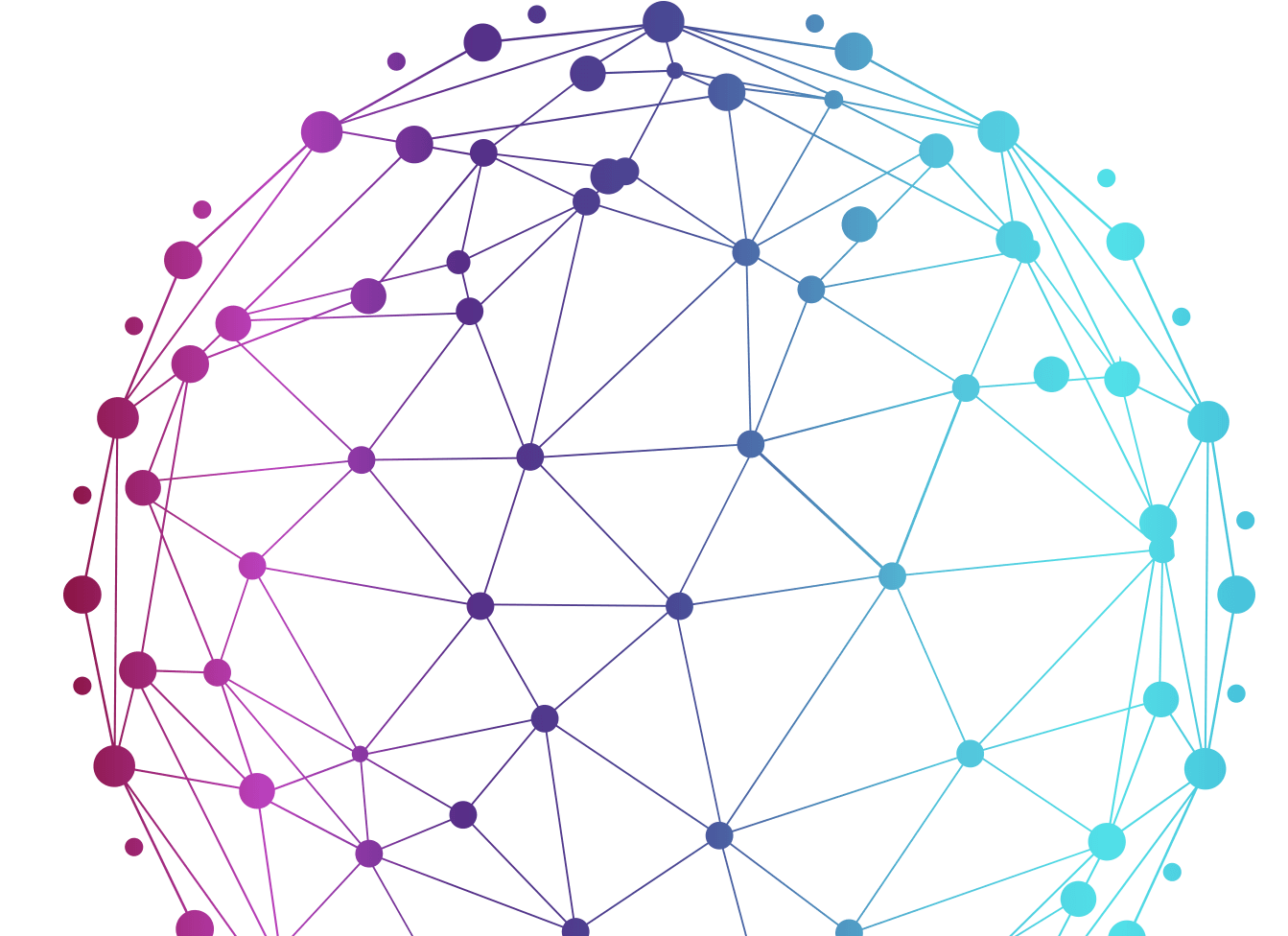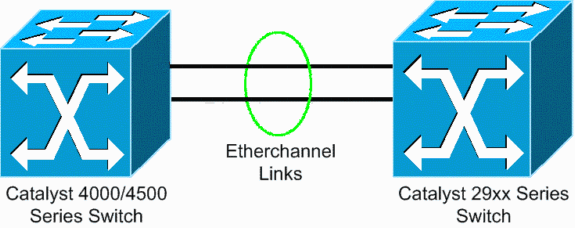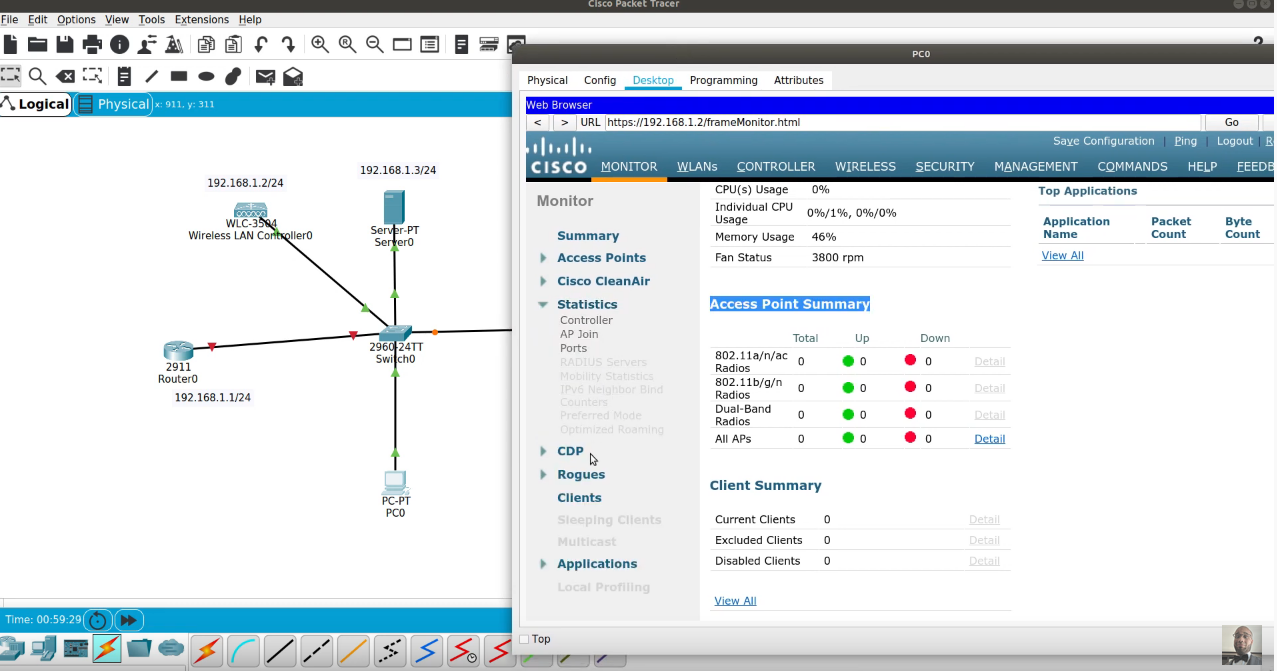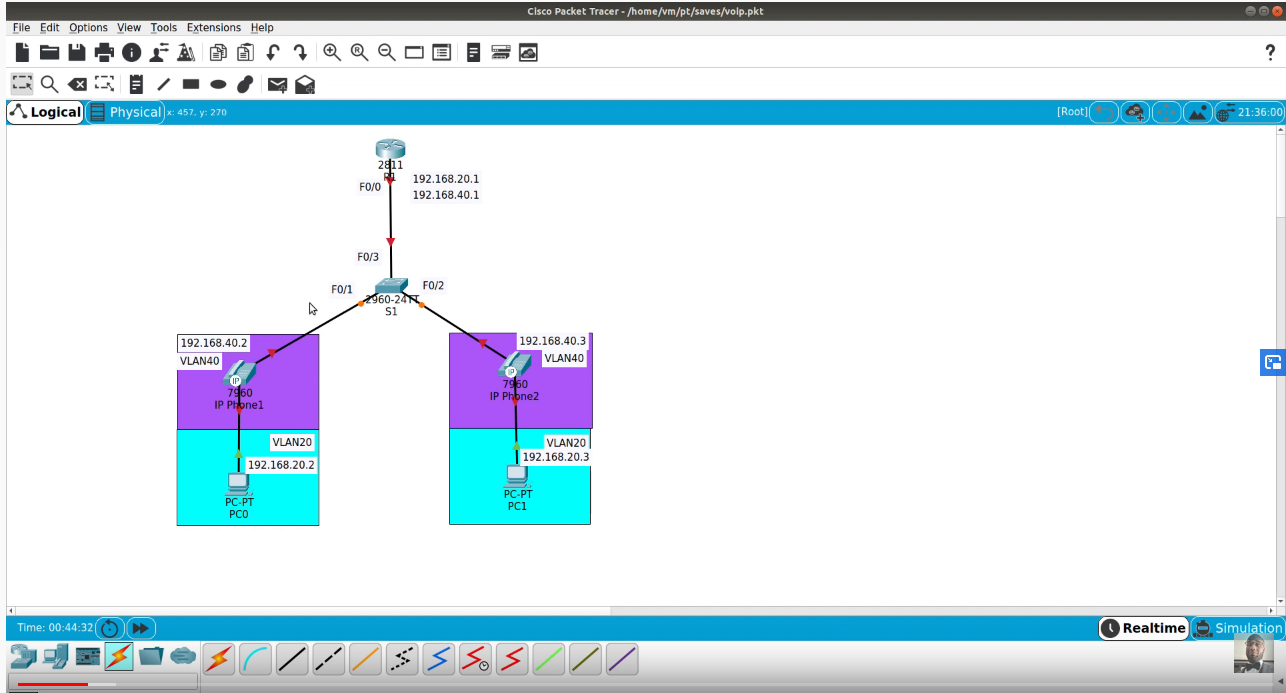Link Aggregation Control Protocol (LACP) and Port Aggregation Protocol (PAgP)
EtherChannels have automatic configuration with either Port Aggregation Protocol (PAgP) or Link Aggregation Control Protocol (LACP). You can also configure EtherChannels manually. PAgP is a Cisco-proprietary protocol that you can only run on Cisco switches and on those switches that licensed vendors license to support PAgP. IEEE 802.3ad defines LACP. LACP allows Cisco switches to manage Ethernet channels between switches that conform to the 802.3ad protocol. You can configure up to 16 ports to form a channel. Eight of the ports are in active mode and the other eight are in standby mode. When any of the active ports fail, a standby port becomes active. Standby mode works only for LACP, not for PAgP.
If you use one of these protocols, a switch learns the identity of partners able to support either PAgP or LACP and learns the capabilities of each interface. The switch then dynamically groups interfaces with similar configurations into a single logical link (channel or aggregate port); the switch bases these interface groups on hardware, administrative, and port parameter constraints. For example, PAgP groups the interfaces with the same speed, duplex mode, native VLAN, VLAN range, and trunking status and type. After PAgP groups the links into an EtherChannel, PAgP adds the group to the spanning tree as a single switch port.
| Switch | LACP Support | Minimum LACP Version with Support | PAgP Support | Minimum PAgP Version with Support |
|---|---|---|---|---|
| Catalyst 2940 | Yes | Cisco IOS Software Release 12.1(19)EA1 | Yes | Cisco IOS Software Release 12.1(13)AY |
| Catalyst 2950 | Yes | Cisco IOS Software Release 12.1(14)EA1 | Yes | Cisco IOS Software Release 12.0(5.2)WC(1) |
| Catalyst 2955 | Yes | Cisco IOS Software Release 12.1(14)EA1 | Yes | Cisco IOS Software Release 12.1(12c)EA1 |
| Catalyst 2970 | Yes | Cisco IOS Software Release 12.2(18)SE | Yes | Cisco IOS Software Release 12.1(11)AX |
| Catalyst 2900XL | No | — | No | — |
| Catalyst 3500XL | No | — | No | — |
PAgP and LACP Modes
This section lists the user-configurable EtherChannel modes for the channel-group interface configuration command. Switch interfaces exchange PAgP packets only with partner interfaces with the auto or desirable mode configuration. Switch interfaces exchange LACP packets only with partner interfaces with the active or passive mode configuration. Interfaces with the on mode configuration do not exchange PAgP or LACP packets.
- active—Places an interface into an active negotiation state, in which the interface starts negotiations with other interfaces through the send of LACP packets.
- auto—Places an interface into a passive negotiation state, in which the interface responds to PAgP packets that the interface receives but does not start PAgP packet negotiation. This setting minimizes the transmission of PAgP packets.
- desirable—Places an interface into an active negotiation state, in which the interface starts negotiations with other interfaces through the send of PAgP packets.
- on—Forces the interface into an EtherChannel without PAgP or LACP. With the on mode, a usable EtherChannel exists only when an interface group in the on mode has a connection to another interface group in the on mode.
- passive—Places an interface into a passive negotiation state, in which the interface responds to LACP packets that the interface receives, but does not start LACP packet negotiation. This setting minimizes the transmission of LACP packets.
There are only three valid combinations to run the LACP link aggregate, as this table shows:
| Switch | Switch | Comments |
|---|---|---|
| active | active | Recommended. |
| active | passive | Link aggregation occurs if negotiation is successful. |
| on | on | Link aggregation occurs without LACP. Although this works, this combination is not recommended. |
Note: By default, with the configuration of an LACP channel, the LACP channel mode is passive.
PAgP Restrictions
PAgP aids in the automatic creation of FEC links. PAgP packets transmit between FEC-capable ports to negotiate the formation of a channel. Some restrictions have been deliberately introduced into PAgP. The restrictions are:
- PAgP does not form a bundle on ports with configuration for dynamic VLANs. PAgP requires that all ports in the channel belong to the same VLAN or that the ports have trunk port configurations. When a bundle already exists and you modify the VLAN of a port, all ports in the bundle change to match that VLAN.
- PAgP does not group ports that operate at different speeds or port duplex. If you change speed and duplex when a bundle exists, PAgP changes the port speed and duplex for all ports in the bundle.
- PAgP modes are off, auto, desirable, and on. Only the combinations auto-desirable, desirable-desirable, and on-on allow the formation of a channel. If a device on one side of the channel does not support PAgP, such as a router, the device on the other side must have PAgP set to on. Catalyst 2950 switches support PAgP for channel negotiation with Cisco IOS Software Release 12.1(6)EA2 or later. Cisco IOS Software Release 12.0 supports only static configuration. All Catalyst switches that run CatOS support PAgP protocol channel negotiation.
Dynamic Trunking Protocol (DTP)
There are different types of trunking protocols. If a port can become a trunk, it may also have the ability to trunk automatically. In some cases, the port may even be able to negotiate what type of trunking to use on the port. This ability to negotiate the trunking method with the other device has the name Dynamic Trunking Protocol (DTP).
Catalyst 2950 switches support DTP for dynamic trunking with Cisco IOS Software Release 12.1(6)EA2 or later. Cisco IOS Software Release 12.0 supports only static configuration. All Catalyst switches that run CatOS support DTP.
Configure
In this section, you are presented with the information to configure the features described in this document.
Note: To find additional information on the commands used in this document, use the Command Lookup Tool
Network Diagram
This document uses this network setup:



